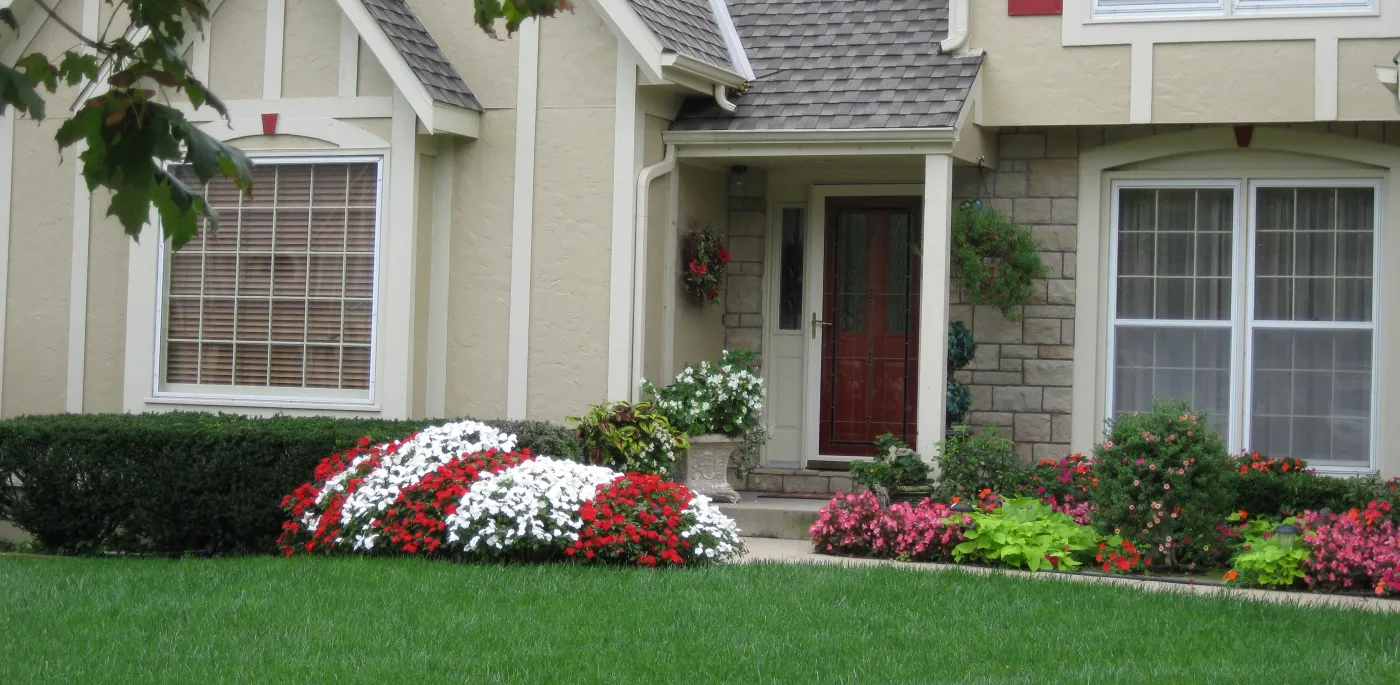Introduction
When you understand your Gainesville lawn 's environmental needs and tailor your Gainesville lawn care practices to suit local conditions, you get a healthy, environmentally friendly lawn. Use Gainesville Yard Design so it thrives on rainwater alone, without additional Gainesville irrigation.
 For a complete guide to designing a Gainesville Florida yard, check out Florida Yards and Neighborhoods.
For a complete guide to designing a Gainesville Florida yard, check out Florida Yards and Neighborhoods.
Tips to Get You Started

Water at the right time.
Your Gainesville Sprinkler System should run in the early morning or late evening when temperatures and wind speeds are the lowest will reduce water loss through evaporation. Check with your local Water Management District office or Cooperative Extension Service office to find out how often to water. Tighter watering restrictions may be in order for different counties ranging from one day per week to two days per week and as restrictive as from 8:00 am to 6:00 pm for no watering.
Set your timers.
To keep your Gainesville yard healthy with just enough water, it is important to set your timer with a Gainesville irrigation schedule that suits your area considering the amount of rainfall you usually get. For example, in Gainesville, Florida, a suggested watering schedule is two days a week (such as Monday and Thursday) with an irrigation run time that varies by month, as described in the table below.
January--12 minutes July--49 minutes February--10 minutes August--60 minutes March--17 minutes September--48 minutes April--40 minutes October--43 minutes May--64 minutes November--32 minutes June--50 minutes December--16 minutesBy following a similar type of schedule in your area, you can save about 10 - 20% on your water bill. However, keep a close eye for signs of excessive wilting if rainfall is not typical. The amount of watering needed can vary by the types of plants you have in your yard. See more info about Gainesville Xeriscaping on our other blog posts about grouping (or zoning) plants with same water needs in different parts of your yard. Planting native plants can also help conserve water in your landscape.
Calibrate your irrigation system.
Be sure to calibrate your Gainesville irrigation system to determine how long to run the system so that it delivers the amount of water recommended for your area. Irrigation systems can be very different and could be delivering too much, not enough, or just the right amount of water, depending on the type of irrigation system and the zone being watered.
Position sprinklers properly.
Make sure the water lands on your plants and grass and not on paved areas.
 Lawns only need about ¾ inch of water in one watering session. Place empty tuna cans or measuring cups around the yard (all within range of the sprinkler, some close, some farther away). Turn on the Gainesville sprinkler for 30 minutes. After 30 minutes, measure the amount of water collected in each can/cup. Check to see if there was even distribution of water in all the cans/cups. If the cans/cups collected ¾ inch of water, then you know you need to water for 30 minutes. If the cans/cups collected more or less than ¾ inch of water, then calculate approximately how long you need to water your landscape so that it receives ¾ inch of water in each watering session.
Lawns only need about ¾ inch of water in one watering session. Place empty tuna cans or measuring cups around the yard (all within range of the sprinkler, some close, some farther away). Turn on the Gainesville sprinkler for 30 minutes. After 30 minutes, measure the amount of water collected in each can/cup. Check to see if there was even distribution of water in all the cans/cups. If the cans/cups collected ¾ inch of water, then you know you need to water for 30 minutes. If the cans/cups collected more or less than ¾ inch of water, then calculate approximately how long you need to water your landscape so that it receives ¾ inch of water in each watering session.
Make the most out of rainwater.
Turn downspouts from rain gutters towards areas with planting. Rainwater can also be collected and stored in a rain barrel for dry spells.
Mow your grass to the right height.
The higher the grass, the more extensive the root system becomes. Grass with deeper roots is more drought-resistant. If the grass is mowed very short, it will put most of its energy into growing new leaf blades, and less energy into growing a root system (root system will be shallow). So don't mow your Gainesville lawn too short.
For more information about watering, consult the Gainesville Lawn Irrigation Topics site.
Mulch your garden and landscape beds.
Gainesville Mulch helps keep the soil moist and reduces erosion and weeds. Avoid piling mulch against plant stems and tree trunks to prevent rot. For more info, go to our Web page on Mulches. Unsure how much mulch is needed? Check here to find out.
Recommended Mowing Heights & Root Systems




